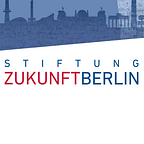FROM ‘CIVIC DESERTS’ TO CIVIC COHESION IN THE PERIPHERIES OF EUROPE
EXECUTIVE SUMMARY
by Louisa Slavkova, Leonie Sichtermann, Dobrena Petrova
Civic Europe1/ Sofia Platform Foundation
Co-authored by Razvan Zamfira, Studio Interrobang
BACKGROUND AND OBJECTIVES
Freedom House’s 2021 annual report speaks of a deepening democratic recession in 2020. Global freedom is in decline in the 15th consecutive year with more countries experiencing deterioration than democratic improvements. Europe is historically the best performing region in terms of liberal democracy, but even here its principles have been under pressure in recent years. Illiberal populist leaders and parties in Central and Eastern Europe have attacked independent institutions. Hungary has become the first member state of the European Union (EU) to be classified as only partly free and Poland adopted a series of measures to break down judicial independence, dominate the media and mute criticism from civil society. Equally worrisome is the serious lack of trust in societies towards government, business, NGOs and media, the diminishing faith in democracy (especially among young people) and low voter turnout.
A strong discrepancy in attitudes between capital cities and the rest of the country, observed inelectoral maps, is what brought our attention to areas outside the big cities in Bulgaria, Hungary, Poland and Romania. Looking closer, we noticed certain repeating trends in these areas in Central
and Eastern Europe which, based on the analysis of voter preferences, translate into stronger susceptibility to illiberal ideas. Some of these recurring trends are poverty, depopulation and aging population, unemployment, emigration, bad state of physical infrastructure, economic stagnation,
corruption on the local level, captured municipalities, etc. In previous research we noticed that civic life on the local level differs from civic life in capital cities and so do the challenges that civic actors (civil society) are facing.
However, while considerable attention is paid to civil society on the national level and in large urban centers, little attention, resources, and research is devoted to civil society on the local level. Thus, we decided to take a closer look into civil society on the local level.
Our intention was 1) to better understand the particular challenges of civic life locally and 2) to explore ways of strengthening civic cohesion.
Anecdotal evidence from expert interviews pointed us to a few distinct regions in CEE that, according to respondents, were strongly affected by these tendencies to different degree: Bulgaria’s Northwest (Severozapaden), Hungary’s North North and Northeast: (Észak-Magyarország and Észak-Alföld), Poland’s Northeast (Podlasie) and Romania’s South (Sud-Muntenia).
We took these four so-called civic desert regions as case studies and looked at the civic actors there, as well as the challenges they are facing, through a variety of methods: semi-structured expert interviews, stakeholder mapping, desk research. This paper offers recommendations on ways to enhance civic cohesion in such regions as well as some examples of promising practice.
DEFINING “CIVIC DESERTS” AND CIVIC COHESION
While it takes political will (on national and European level) to tackle most political and structural challenges (poverty, political pressure, depopulation, legislation etc.), the civic challenges are something civil society, philanthropy, companies, journalists, and citizens can work on. For the purpose of this study, we will thus focus less on the political and structural set of challenges
and more on the civic ones.
So-called civic deserts are places that are perceived as having few to no opportunities to actively participate in civic life mainly because of:
→ deficient civic infrastructure (weak civil society, very few or no actual physical spaces where people could come together as a community, very few or no community centers, libraries, museums, schools, low mobility of the local population, etc.),
→ low civic literacy (citizens do not perceive themselves as civic actors, they do not feel that anything depends on them, they lack the motivation, but oftentimes also the knowledge and skills to actively participate in their communities).
Civic cohesion is what we call the (aspired) state of a community that has:
→ possibilities for social and political engagement (active citizenship),
→ strong civic literacy,
→ access to civic infrastructure,
→ trust, acceptance, solidarity and connectedness among groups and individuals in the community (social cohesion).
RECOMMENDATIONS
→ Support for civil society outside capitals and big urban centers, especially in so-called “civic deserts”.
→ Capacity building activities for local actors, tailored to needs and context. A few areas a focus could be: (financial) sustainability, impact evaluation, advocacy and cocmmunication, networking and partnerships.
→ Mentorship programs as part of capacity building efforts.
→ Access to welcoming and inclusive civic spaces.
→ Support for civic education.
→ Research and data collection on civic life and attitudes of citizens on the local level (NUTS 2 regions).
→ Include civic cohesion in EU cohesion policy.
Louisa Slavkova, founder and executive director of the Sofia Platform Foundation. Louisa is advisory board member of the European Network for Civic Education NECE. In 2016 Louisa was Ronald Lauder Visiting Fellow at the Institute for the Study of Human Rights at Columbia University, NYC. From 2013 to 2016, she was programs manager at the European Council on Foreign Relations (ECFR). Prior to joining ECFR, Louisa served for two years as adviser to Bulgaria’s Foreign Minister Nickolay Mladenov (currently UN’s envoy for Middle East peace). Before that, she’s worked with the German Federal Agency for Civic Education (bpb). She is author and editor of several books and publications on foreign policy, democracy development and civic education. Louisa is co-author of a text book on civic education in Bulgaria.
